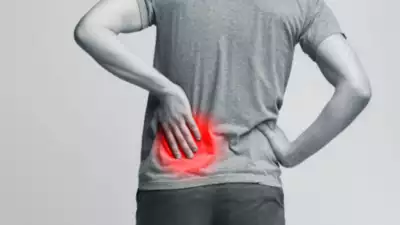March 14 marks World Kidney Day, a global initiative aimed at raising awareness about kidney health and promoting preventive measures against kidney-related ailments. In light of this, it’s crucial to delve into a prevalent issue affecting millions worldwide: kidney stones. With India accounting for a significant portion of global cases, understanding the causes, prevention strategies, and dietary interventions is paramount.
Understanding Kidney Stones
Kidney stones, or renal stones, are solid deposits formed within the kidneys when minerals and salts crystallize in urine. According to Dr. Ahmed Kamaal, Senior Consultant in Urology at Amrita Hospital, Faridabad, the prevalence of renal stones in India stands at around 12%, with recurrent episodes exceeding 50% within five years.
Dr. Kushal Banerjee, Senior Homeopath at Dr. Kalyan Banerjee’s Clinic, highlights various causes, including dietary factors, lack of physical activity, and genetic predispositions. Factors such as obesity, certain medications, and underlying health conditions further elevate the risk.
Today is World Kidney Day. #WorldKidneyDay #KidneysMatter #Kidneys pic.twitter.com/DcDLs2XFOh
— All On The Board (@allontheboard) March 14, 2024
Prevention Strategies
Addressing lifestyle factors is crucial in preventing kidney stone formation. Dr. Banerjee emphasizes the importance of a balanced diet, adequate hydration, and regular physical activity. Avoiding excessive consumption of packaged foods, high-protein diets low in fiber, and aerated beverages can mitigate the risk. Additionally, steering clear of foods high in uric acid, such as spinach and tomatoes, is advisable for those prone to kidney stones.
Dr. Kamaal underscores the significance of genetic predispositions and metabolic abnormalities in stone formation. Developing personalized preventive strategies tailored to an individual’s genetic profile can aid in long-term management.
Recurrence and Treatment
Despite treatment, kidney stone recurrence remains a concern for many. Dr. Kamaal attributes this to inadequate treatment, unresolved metabolic abnormalities, and genetic factors. Adopting a holistic approach that encompasses dietary modifications, hydration, and lifestyle adjustments is essential in preventing recurrent episodes.
Dietary Interventions for Kidney Health
Incorporating specific foods into your diet can promote kidney health and reduce the risk of stone formation. Dr. Preeti Bansal, a Nephrologist, recommends the following:
- Blueberries: Rich in antioxidants and anti-inflammatory properties, blueberries aid in preventing kidney inflammation.
- Curd or Buttermilk: Probiotics present in curd and buttermilk support kidney detoxification, helping eliminate toxins that may harm kidney function.
- Millets: Low in sodium and high in nutrients, millets like Ragi help cleanse the kidneys and regulate blood pressure, crucial for individuals with kidney disease.
- Green Leafy Vegetables: Packed with potassium and anti-inflammatory compounds, green leafy vegetables reduce inflammation in the kidneys and support overall kidney health.
- Vitamin C Foods: Citrus fruits, cucumbers, and broccoli, rich in vitamin C, aid in dissolving kidney stones and maintaining kidney function.
Conclusion
As we observe World Kidney Day, it’s imperative to prioritize kidney health through awareness, preventive measures, and dietary interventions. By understanding the causes of kidney stones, implementing preventive strategies, and incorporating kidney-friendly foods into our diets, we can safeguard our kidneys and promote overall well-being. Let’s take proactive steps towards healthier kidneys and a healthier future.
